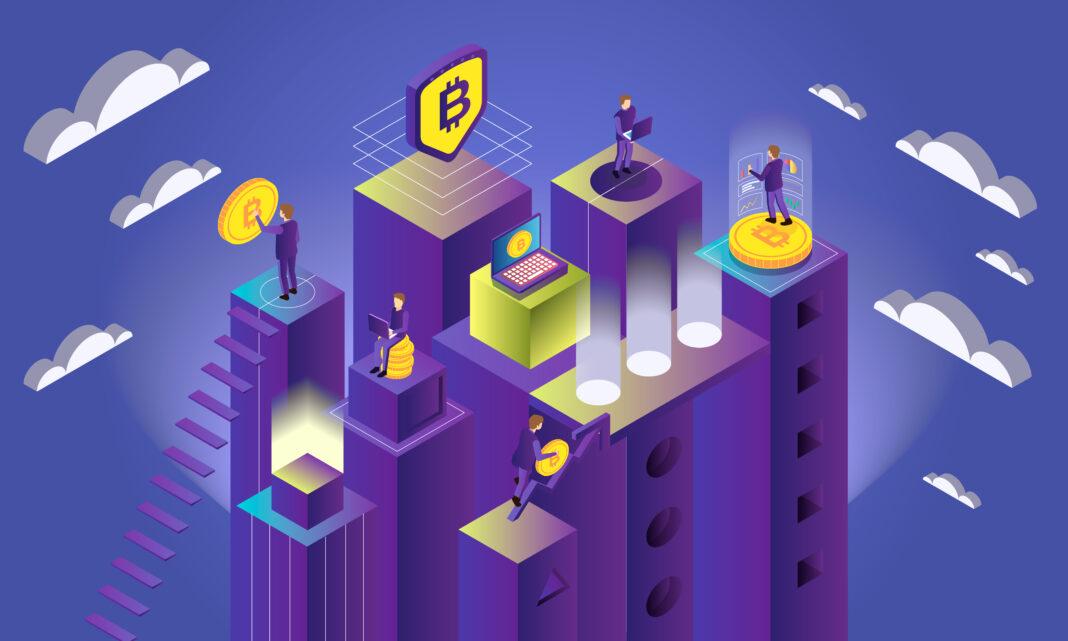Introduction
The world of finance is constantly evolving, and one of the latest advancements that has captured the attention of both investors and technology enthusiasts is DeFi. DeFi, short for decentralized finance, is a groundbreaking concept that aims to transform traditional financial systems by leveraging blockchain technology. In this article, we will explore what DeFi is, its benefits, various applications, how it works, potential challenges, and its future outlook.
What is DeFi?
DeFi refers to a decentralized financial ecosystem built on public blockchain networks, such as Ethereum. Unlike traditional financial systems that rely on intermediaries like banks, DeFi operates on a trustless and transparent network of smart contracts. These smart contracts are self-executing agreements written in code, eliminating the need for intermediaries and enabling direct peer-to-peer transactions.
The Benefits of DeFi
DeFi offers several significant benefits over traditional finance. Firstly, it promotes financial inclusivity by providing access to financial services to anyone with an internet connection, irrespective of their location or socioeconomic background. Additionally, DeFi eliminates the need for intermediaries, reducing costs, and enabling faster transactions. The transparent nature of blockchain ensures that every transaction can be verified, enhancing security and trust among participants.
DeFi Applications
DeFi has a wide range of applications that are revolutionizing different sectors within the financial industry.
Decentralized Exchanges
Decentralized exchanges (DEXs) are platforms that facilitate peer-to-peer cryptocurrency trading. Unlike centralized exchanges, DEXs allow users to retain control of their funds while providing increased security and privacy.
Decentralized Lending and Borrowing
DeFi platforms enable individuals to lend or borrow digital assets without the involvement of traditional financial institutions. Smart contracts ensure the automatic execution of loan agreements, eliminating the need for credit checks and collateral.
Stablecoins
Stablecoins are cryptocurrencies designed to maintain a stable value by pegging them to a fiat currency or a basket of assets. DeFi has popularized the use of stablecoins, providing a stable and reliable medium of exchange within the decentralized ecosystem.
Yield Farming
Yield farming involves staking or lending cryptocurrency assets on DeFi platforms to earn additional tokens as rewards. This practice encourages liquidity provision and incentivizes users to participate actively in the DeFi ecosystem.
Insurance
DeFi insurance protocols offer coverage against smart contract failures, hacks, or other risks associated with the decentralized finance space. These insurance products provide participants with an added layer of security and protection.
How DeFi Works
DeFi relies on the utilization of smart contracts and interoperability between different blockchain networks.
Smart Contracts
Smart contracts are self-executing agreements that automatically facilitate and enforce the terms of an agreement. In DeFi, smart contracts ensure that transactions occur only when specific conditions are met, eliminating the need for intermediaries and increasing the efficiency of financial operations.
Interoperability plays a crucial role in the DeFi ecosystem, as it allows different blockchain networks and protocols to communicate and interact with each other seamlessly. By achieving interoperability, DeFi opens up possibilities for cross-chain transactions, asset transfers, and the integration of various decentralized applications (dApps), enhancing the overall functionality and efficiency of the ecosystem.
Challenges and Risks
While DeFi offers numerous advantages, it also faces certain challenges and risks that need to be addressed for widespread adoption. One of the primary concerns is the security of smart contracts. Since they are written in code, vulnerabilities can be exploited, leading to potential hacks and financial losses. Additionally, scalability remains a hurdle as DeFi applications on Ethereum often face congestion and high transaction fees during periods of high demand.
Furthermore, the regulatory landscape surrounding DeFi is still evolving, and there are uncertainties regarding compliance and legal frameworks. As the ecosystem grows, it will be essential to find a balance between innovation and regulatory compliance to ensure the long-term sustainability and legitimacy of DeFi.
Future of DeFi
The future of DeFi looks promising as it continues to gain traction and evolve rapidly. As scalability solutions are implemented, DeFi platforms will become more efficient, offering faster transactions and lower fees. Interoperability between different blockchain networks will further expand, enabling seamless asset transfers and fostering cross-chain collaborations.
Moreover, as DeFi becomes more mainstream, we can expect increased institutional involvement and integration with traditional finance. This convergence of decentralized and centralized finance has the potential to bring significant liquidity and stability to the DeFi ecosystem, attracting a broader range of participants and unlocking new avenues for growth.
Conclusion
DeFi is revolutionizing the financial landscape by introducing decentralized solutions that offer greater accessibility, transparency, and efficiency. Through the use of smart contracts and blockchain technology, DeFi applications are reshaping traditional financial services, including exchanges, lending, stablecoins, yield farming, and insurance. While there are challenges to overcome, the future of DeFi looks promising, with ongoing developments and advancements paving the way for a more inclusive and decentralized financial ecosystem.
FAQs
- What is the difference between DeFi and traditional finance? DeFi operates on a decentralized network, utilizing smart contracts and eliminating the need for intermediaries, while traditional finance relies on centralized institutions like banks.
- Are DeFi platforms secure? DeFi platforms strive to ensure security; however, risks exist, such as smart contract vulnerabilities. It’s essential for users to conduct thorough research and adopt best security practices.
- How can I participate in DeFi? To participate in DeFi, you can start by setting up a digital wallet, familiarize yourself with popular DeFi platforms, and manage your digital assets securely.
- What are the benefits of using stablecoins in DeFi? Stablecoins provide stability and mitigate the volatility commonly associated with cryptocurrencies, making them suitable for various financial activities within the DeFi ecosystem.
- Is DeFi regulated? The regulatory landscape for DeFi is still evolving, with varying degrees of regulation across different jurisdictions. It’s crucial to stay informed about the legal and regulatory requirements in your region.
Remember, DeFi is a rapidly evolving space, and it’s always recommended to stay updated with the latest developments and exercise caution when participating in decentralized finance.
ALSO READ:- CRYPTOCURRENCY

